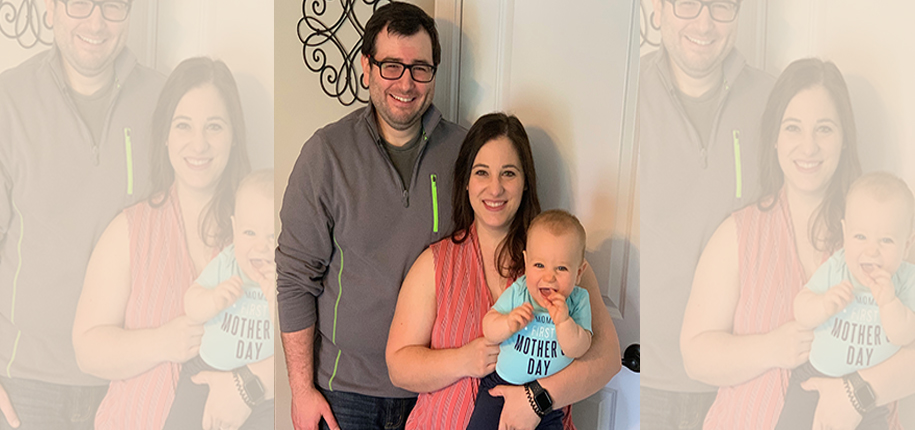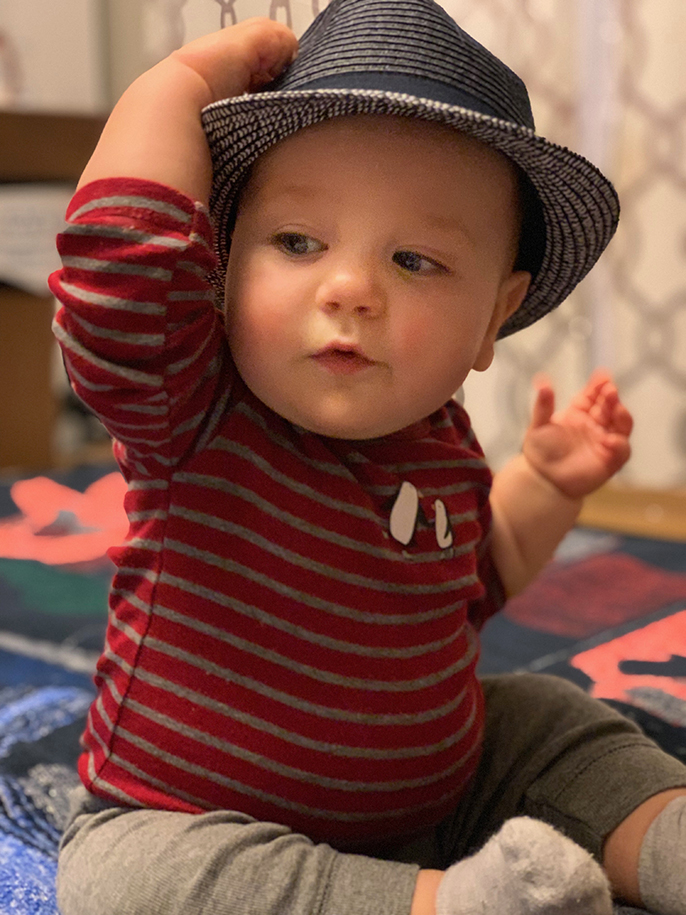
My wife Krista and I knew early on that we wanted to be parents. While becoming a new dad has been one of the greatest joys and challenges of my life, I didn’t expect it to make me a better doctor. My son Kylian has taught me many things allowing me to be a better doctor, but the following are just a few.

Early in medicine, we are taught that every child should be able to perform certain tasks at specific time points. We call these tasks “milestones.” These were something that I memorized when I was in medical school and recalled from memory only when needed. It was just a list of goals I needed to make sure my patients hit so they could grow up happy and healthy for the longest time. This checklist has taken on a whole new meaning now that I am a dad. It has morphed into something way more important and fascinating. Doctors usually only interact with their patients at certain points in their lives. We miss the day-to-day changes and usually only get the big picture.
It has been an incredible experience these past 10 months watching my son actively achieving certain milestones, like seeing him going from one day smiling through you to smiling at you the next. Or not being able to pick anything up to picking up small toys out of a bin. Witnessing these things happen has been surreal, both through the eyes of a dad and that of a doctor. As a result, it has given me a deeper understanding of what they are. I will admit, most parents will be asked about these at their general pediatrician visits. As a radiologist, I no longer use them regularly in my job. However, people I know will sometimes ask me about them in general conversation, mostly because they don’t understand the weird questions their pediatrician asked them. The deeper understanding Kylian has provided allows me to wear both my dad and doctor hats and better explain what those questions mean and why they are so important.
…my quest to being a better doctor is a better understanding of time.
Patience is something that all doctors struggle with. We are often stretched pretty thin and can be stressed out because of it. This sometimes manifests as seeming “impatient” or “cold” when talking with patients and their families. This is most certainly not intended, but when you have a ton to do and no time to do it in, you can sometimes get lost and accidentally disconnect. This inevitably results in your patience running thin.
Kylian has really framed this in a new light. The old adage “patience is a virtue” has never been more true than with parenting. I am quickly figuring out that I am no longer on my own schedule, but Kylian’s. Sure, my wife and I try to keep things like naps, meals, and bedtime structured, but Kylian is his own person and he decides what he wants and when he wants it. This can often affect many things; we can plan to arrive someplace early but actually end up getting there 30 minutes late. Learning things need to be flexible with children has really made me slow down and be more thoughtful in my personal life. This has translated into my job as a doctor, causing me to slow down and focus on what is in front of me rather than getting lost in my never-ending “to do” list. By slowing down and not being stressed about everything all the time, my patience has increased significantly, allowing me to be more attentive and receptive to patients’ (and their families’) needs.
The final thing Kylian has taught me on my quest to being a better doctor is a better understanding of time. When you become a parent, you really start to focus on time and, often, how little of it there really is. I spent most of medical school burning through time like it was going out of style, grinding through it by studying and wishing large swaths of it away just so I could be done with schooling. Nothing has shown me how precious every moment is quite like being a dad. This rings especially true because I currently live away from my family while I’m in training and I only get to see them on weekends. Nothing is more important than the time I spend with them and I think this is true for most families.
I find that patients and families can get caught up in the churn of the slow-moving machine that is medicine. No one wants to spend their limited time with a doctor or at a hospital, even if it is necessary. I have really been cognizant of this concept lately. As someone whose time with their family is limited, I wouldn’t want to waste any of it on something I didn’t want to do either. While I may not be at the point in my career where I can affect the systems-based things of medicine that cause unnecessary time waste, I definitely construct possible solutions for problems I see. This way I may be able to apply them later to enact change, maximizing the efficiency of patients’ interaction with the medical system, especially in radiology, so they don’t have to spend any more time than they need to.
These are just a few ways being a new dad has helped me become the best doctor I can be. I am sure there will be many more lessons ahead and I look forward to experiencing and learning from them together with my family.
Contributed by Dr. Nathan Fagan and edited by Glenn Miñano, BFA.
